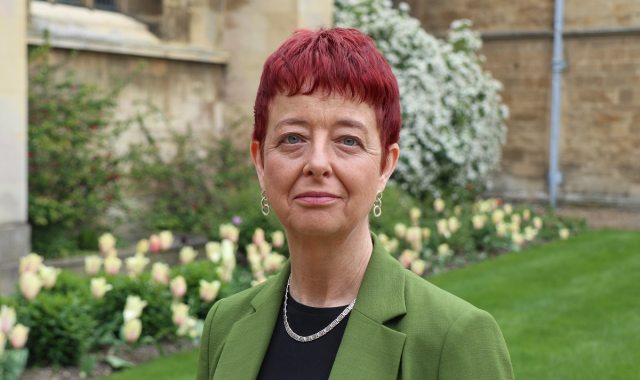Identities in Motion
- 04 May 2021
- 3 minutes
Raising awareness of identities and mobility, and discussing what they mean, is the topic of an interdisciplinary symposium being organised by Gonville & Caius French Lectrice Dr Ashwiny Kistnareddy.
Identities in Motion: An Interdisciplinary Symposium on Mobilities and Crossings on 28 June is by the University of Cambridge Nationalisms and Identities Research Group, which Dr Kistnareddy has been co-convening with Dr Jaakko Heiskanen from the Department of Politics and International Studies (POLIS). They are seeking papers until 14 May, and the symposium is open to all.
The symposium was first held in 2019, and the cancellation of the 2020 event due to the Covid-19 pandemic has had an unexpected benefit. The use of Zoom for academic conferences has enabled national and international attendance in the termly research group seminar sessions.
That means University of Cambridge academics from the departments of POLIS, English, Modern and Medieval Languages and Linguistics, Geography, History, Asian and Middle Eastern Studies, Social Sciences and more, have been joined by colleagues at SOAS, the London School of Economics, the Universities of Edinburgh, Liverpool and as far afield as South Africa, India and the United States.
“The symposium is, for us, something which is always a celebration. It allows us to bring together people from a variety of disciplines to all talk about nationalisms, borders, mobilities and identities,” Dr Kistnareddy says.
“Both of us work on mobilities. Jaakko works on nomadism and I work on migration and refugees. My own work is interdisciplinary in nature as I work at the intersections of literature, sociology, history, human geography, philosophy, human rights law, amongst others.
“It was important to bring in people talking about race, gender, how mobility affects their identity, and not just because they themselves are feeling in between identities, but also because they are talking about physical and emotional displacement.”
With Trumpism, Brexit, the Union – in terms of Northern Ireland and Scottish independence, as well as devolved responsibility for health – the European Union, vaccinations and wars in Syria, Yemen and elsewhere, plus the climate emergency, the ideas discussed are topical, many and varied.
She adds: “We got somebody who decided to send us an abstract about animal mobility and identity; I didn’t think about non-human identity! I thought the animal abstract was interesting, because it gave us a different perspective and it was interesting to see other people have different interpretations that are just as valid and productive.
“I work on refugee literature and representation. One of two of my forthcoming books, Refuge (UCP 2024) discusses the affective experiences of leaving one’s home having to ask somebody else to allow you within their borders so you can survive. It also critically engages with the political discourse ongoing around refugees, the perception of some that people are economic migrants, when many are just trying to survive and have basic human needs.
“It’s a proper humanitarian crisis. If we don’t start this conversation, who is going to know what’s happening? We think of it through the framework of what we see in the media and what politicians choose to focus on; we don’t hear enough from the people living through it on a daily basis.”
The symposium is open to all, and it is hoped a publication will be produced afterwards. The intention is for future symposia to be experienced virtually as well, even when in-person events are restored.


